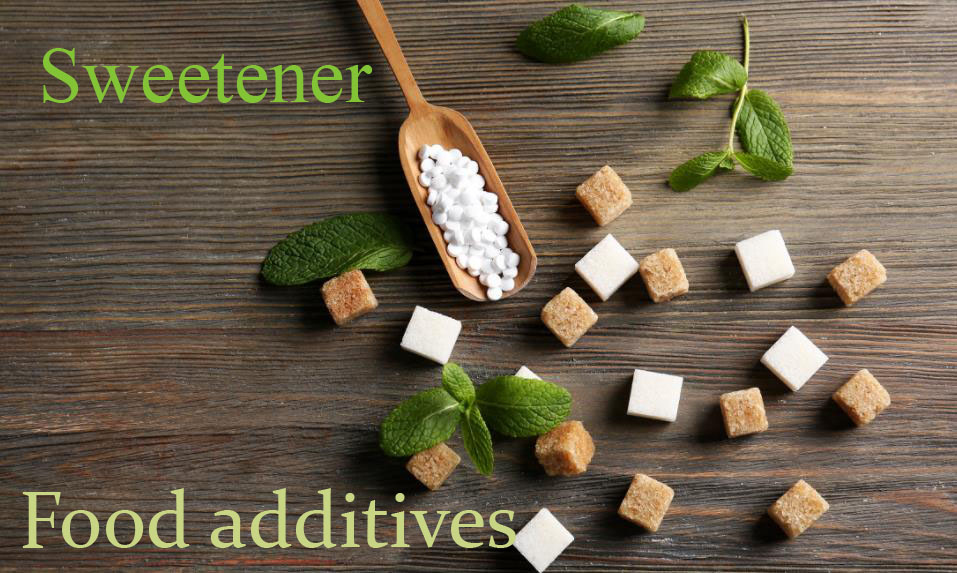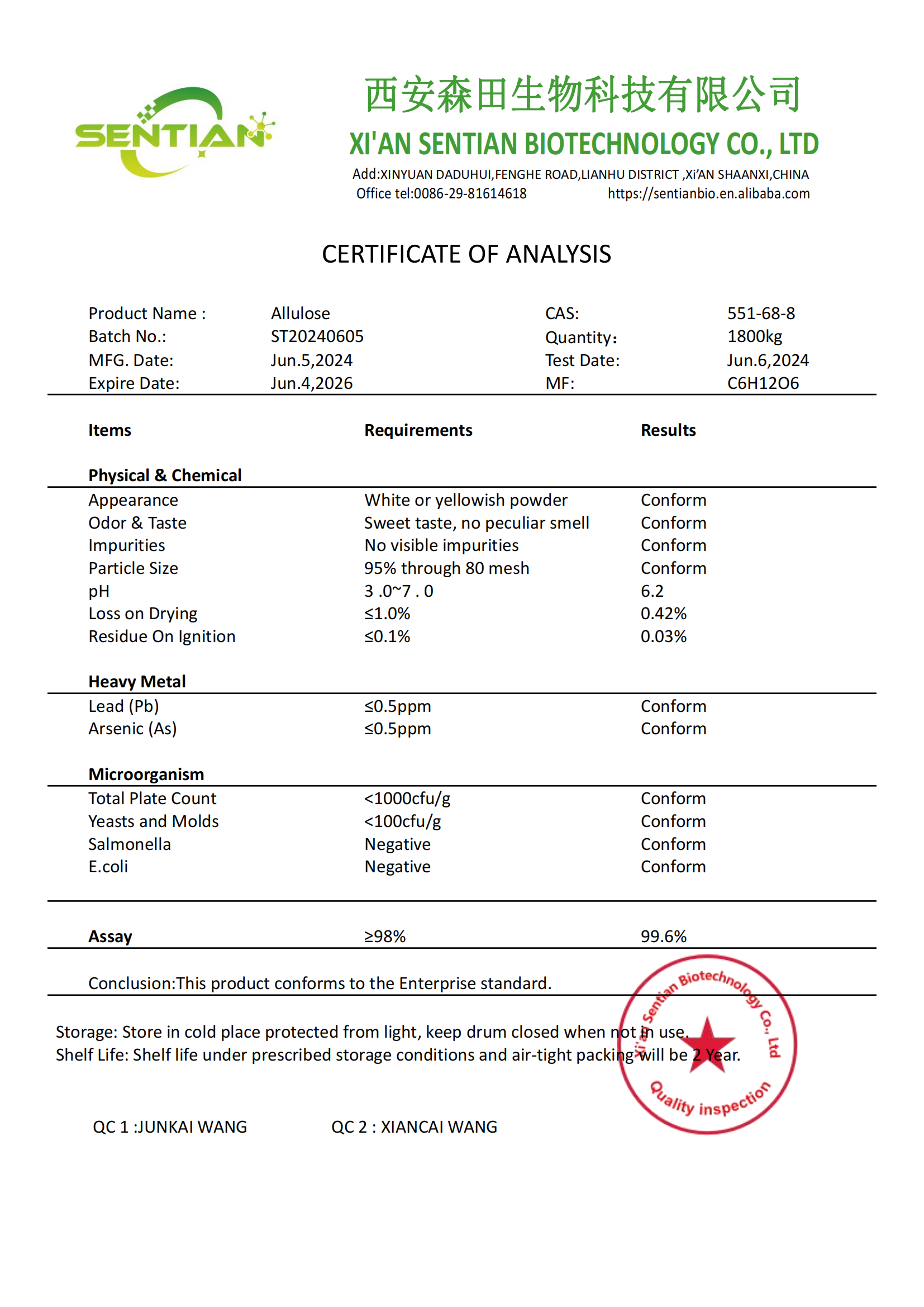Allulose is a natural sweetener derived from the plant Aloketone. It is a low-calorie alternative to traditional sugar and is often used in baking and cooking as a healthier option.
Food Additive Allulose is a new type of sweetener, which is a very low content six carbon sugar in nature. It is naturally present in a few foods, and in 1940, aloketose was first discovered in wheat leaves. Subsequently, small amounts of aloketose were found in certain fruits (such as figs and raisins) as well as maple syrup and Allulose Brown Sugar. By alkaline isomerization of fructose, a small amount of natural aloketose can be obtained.
The physicochemical properties of Allulose:
Allulose and ordinary sucrose have similar physical properties, such as volume, taste, browning ability, and freezing point. Its sweetness is 70% of sucrose, with a refreshing sensation, no bitterness, and low calorie content.
Its sweetness is 70% of sucrose, with a refreshing sensation, no bitterness, and low calorie content.
The calorie value is about 0.2-0.4 calories, which is very low and far lower than the calorie value of other carbohydrates (about 4 calories).
The chemical formula of allulose is the same as fructose (C6H12O6), but with a different arrangement, and it is an epimer of fructose.
This structural difference results in a different way in which the human body metabolizes aloketose compared to fructose.
Allulose is non cariogenic and does not lower the pH value in the oral cavity, thus not increasing the risk of dental caries. It is a healthy sugar.
Allulose is not involved in metabolism
Allulose has some calories, but it is very low, and the metabolic pathway of its transport in the human body is currently not fully understood.
After entering the human body, 70-84% will be absorbed into the bloodstream through the digestive tract and directly excreted through urine or feces.
It cannot penetrate the blood-brain barrier and therefore does not directly affect the central nervous system. The human body absorbs aloketose but does not metabolize it, making it a good substitute for sugar control.
Does Allulose have hypoglycemic effect?
We all know that white kidney bean extract has the effect of amylase inhibitor, and L-arabinose has the effect of sucrase inhibitor, both of which can block about 60-70%.
Allulose is a weak inhibitor of alpha glucosidase, alpha amylase, maltase, and sucrase, which can inhibit the metabolism of starch and disaccharides in the gastrointestinal tract.
Allulose releases GLP-1 (glucagon like peptide-1), which reaches the brain through the bloodstream and acts on receptors in these brain regions, ultimately leading to decreased appetite and increased satiety.
So, allulose has potential anti hyperglycemic effects.
The Health Benefits of Allulose:
1. Low glycemic index: Allulose has a low glycemic index, which means it does not cause a rapid spike in blood sugar levels like traditional sugar does. This makes it a good option for people with diabetes or those looking to manage their blood sugar levels.
2. Weight management: Allulose is lower in calories than traditional sugar, making it a good option for those looking to manage their weight or reduce their calorie intake.
3. Tooth-friendly: Allulose does not promote tooth decay like traditional sugar does, making it a good option for those looking to improve their dental health.
Overall, Allulose is a versatile and healthy alternative to traditional sugar that can be used in a variety of recipes to help support a healthier lifestyle.
If you want to find allulose, you may search" Allulose Near Me" to contact us.
The COA of Allulose:


 Its sweetness is 70% of sucrose, with a refreshing sensation, no bitterness, and low calorie content.
Its sweetness is 70% of sucrose, with a refreshing sensation, no bitterness, and low calorie content.